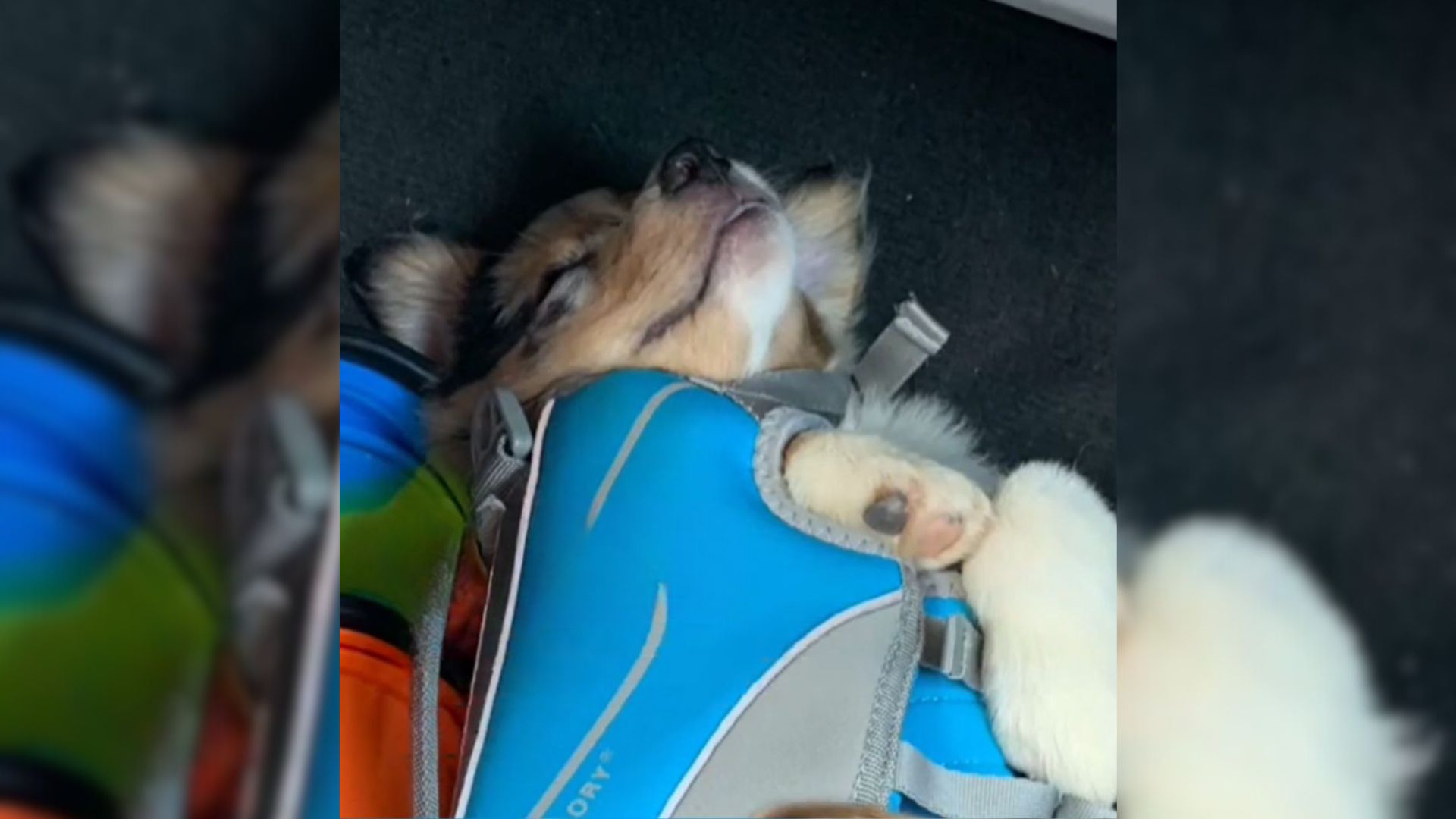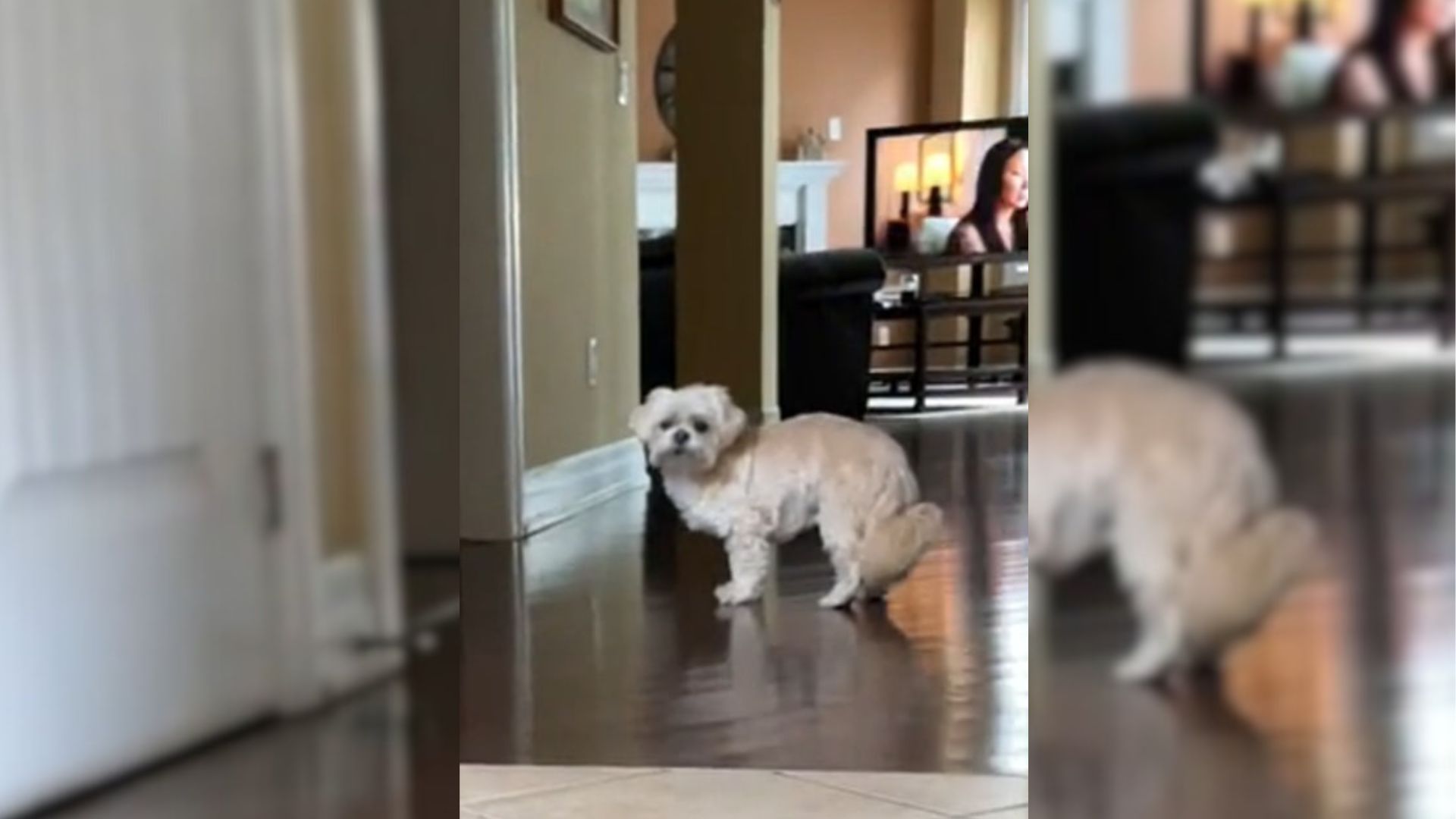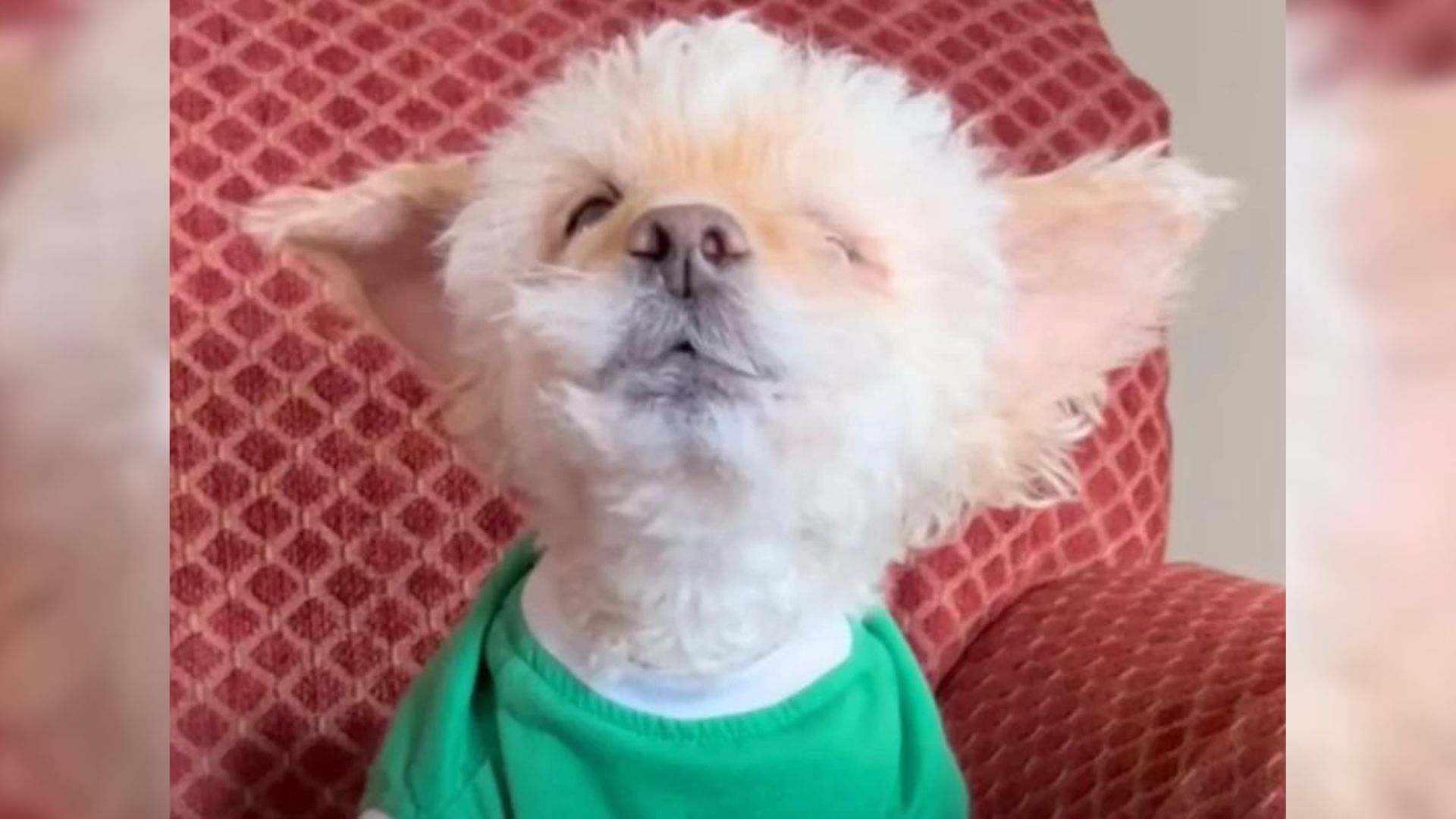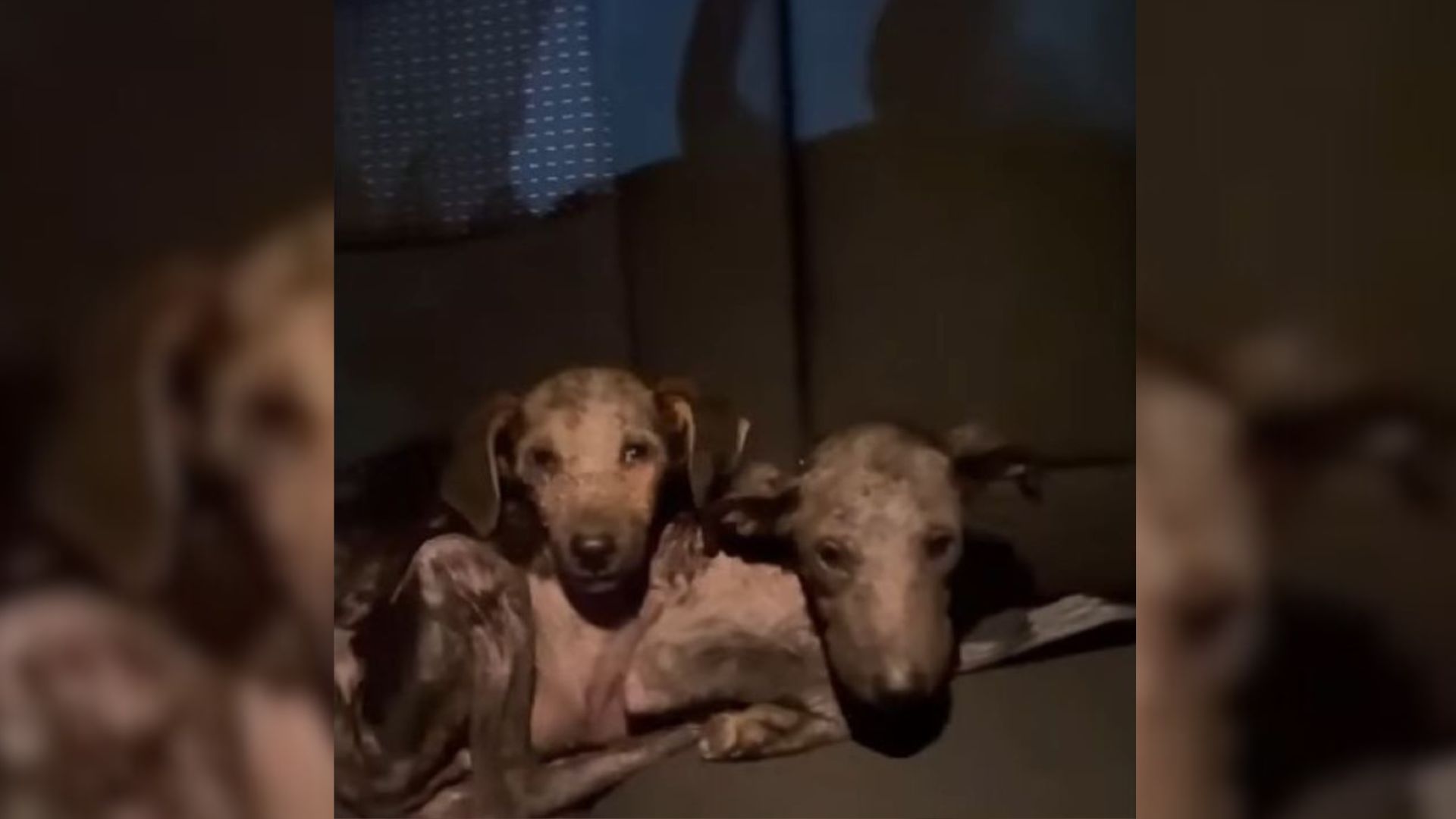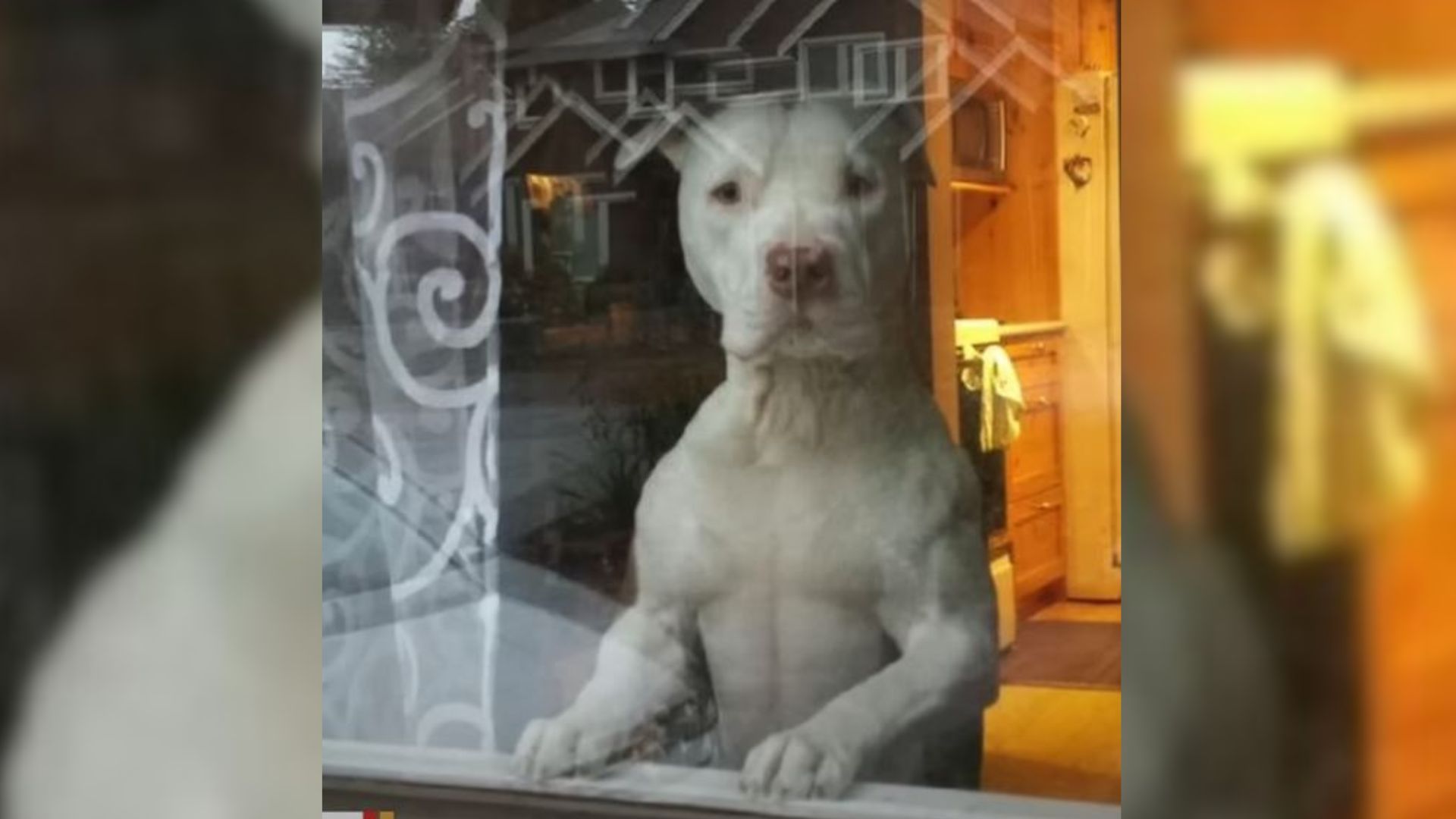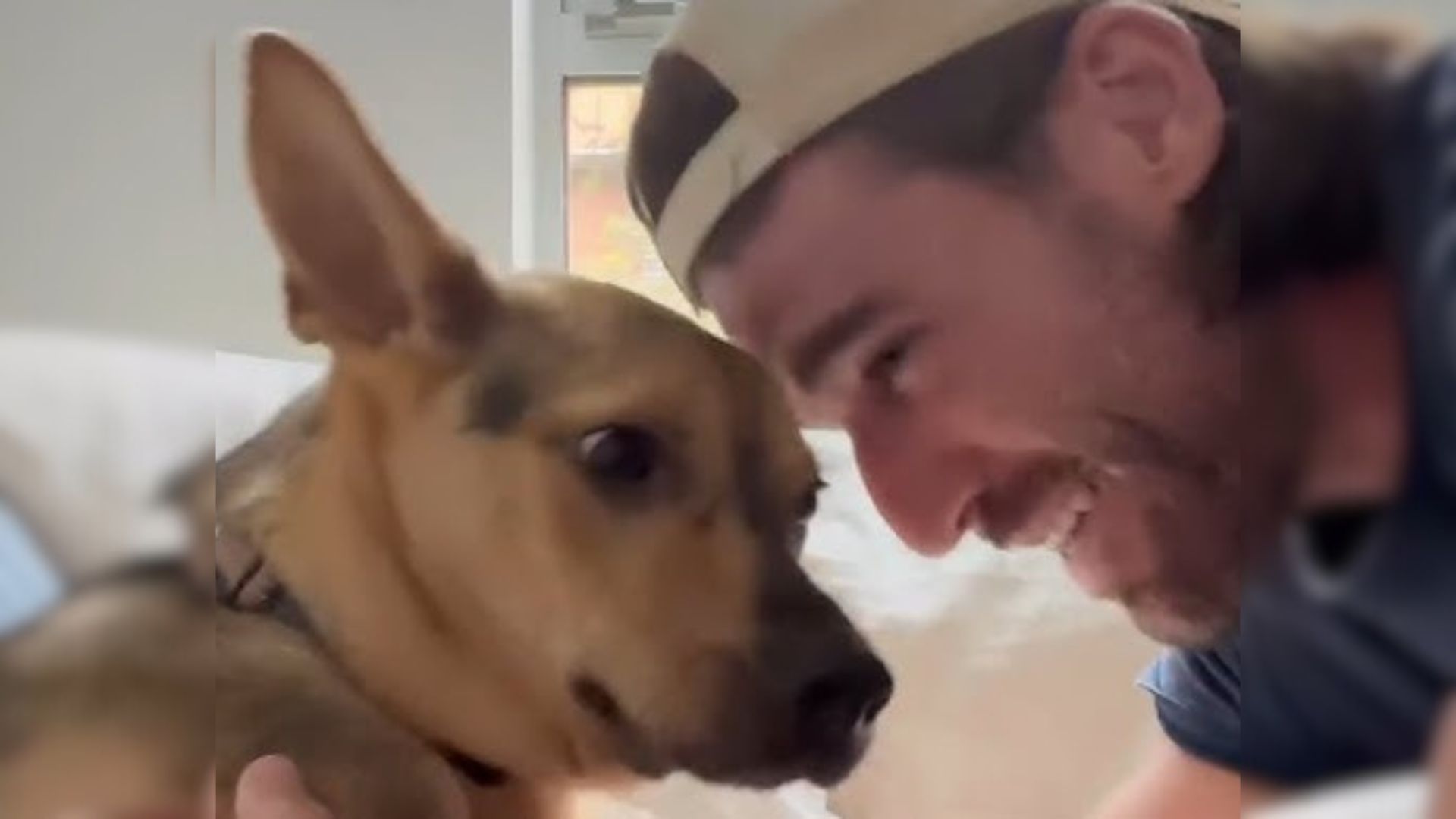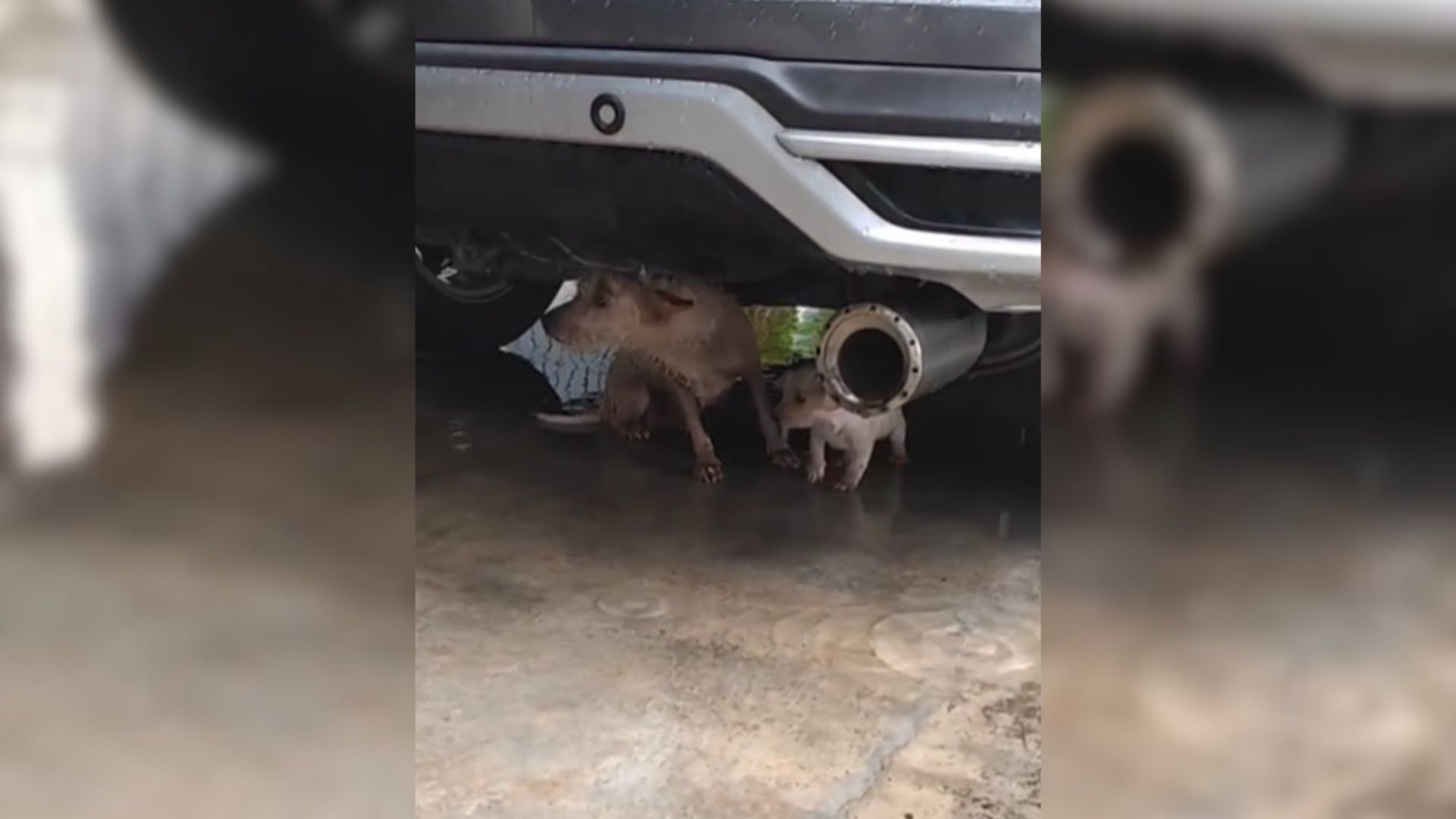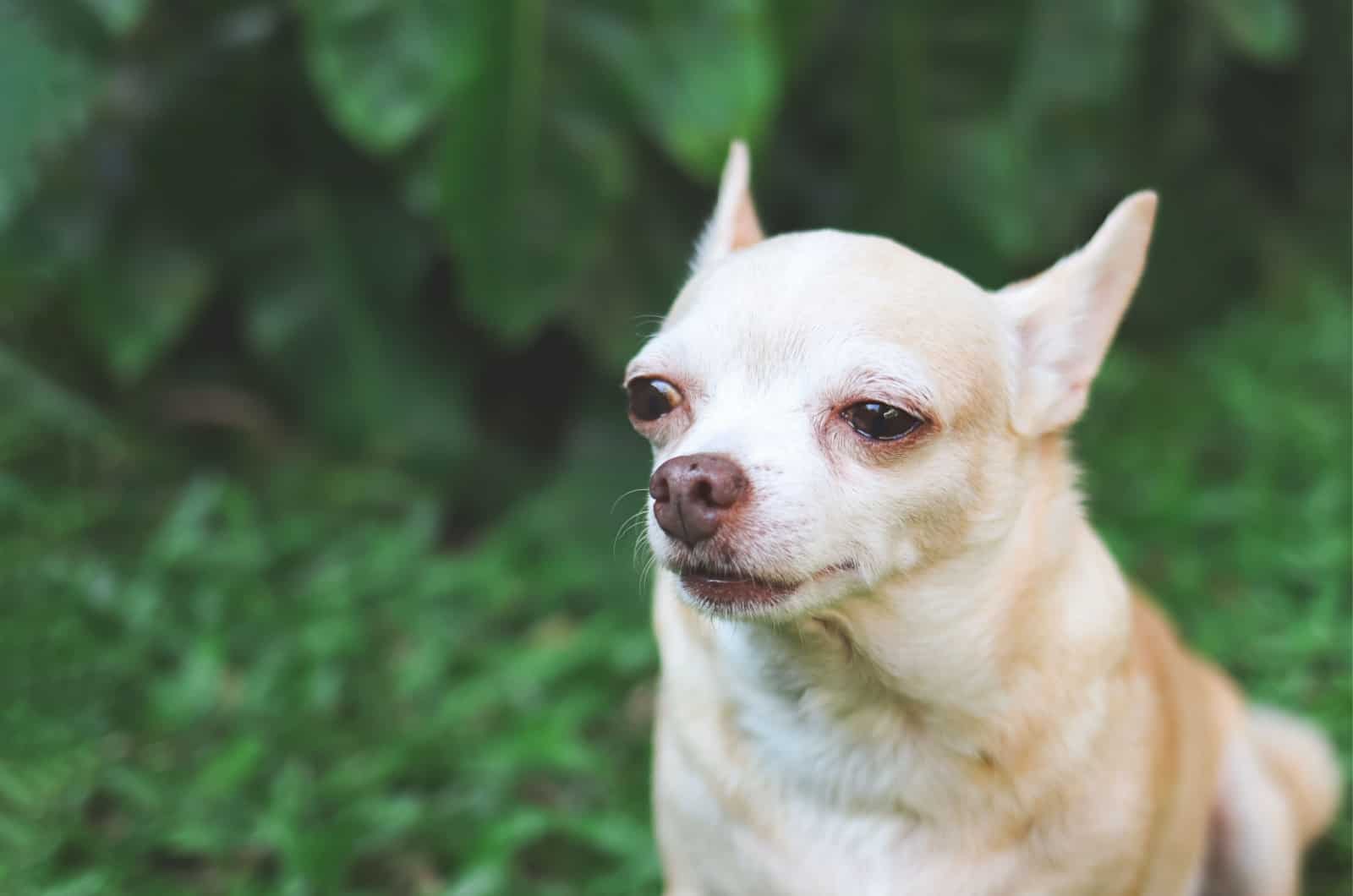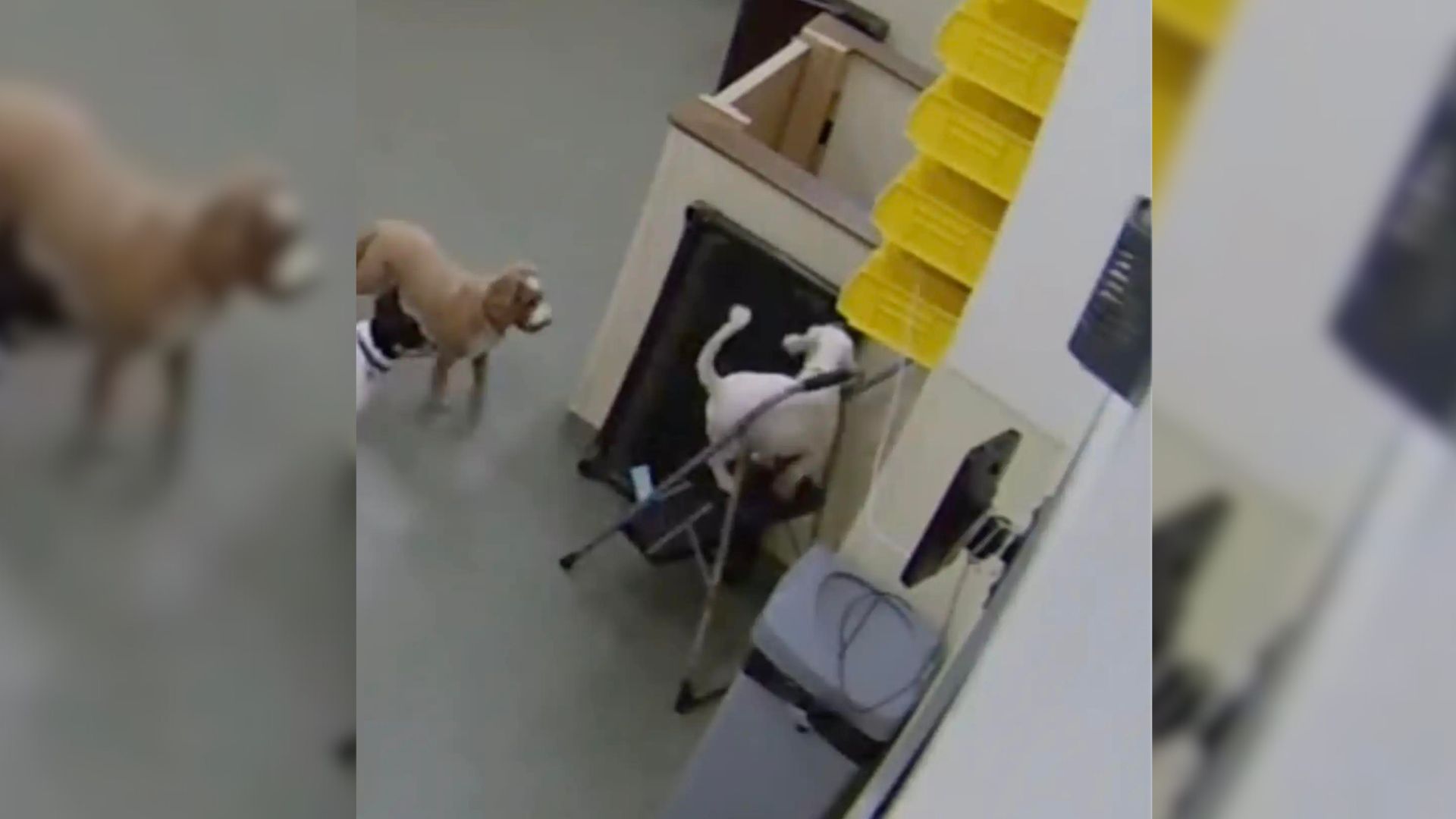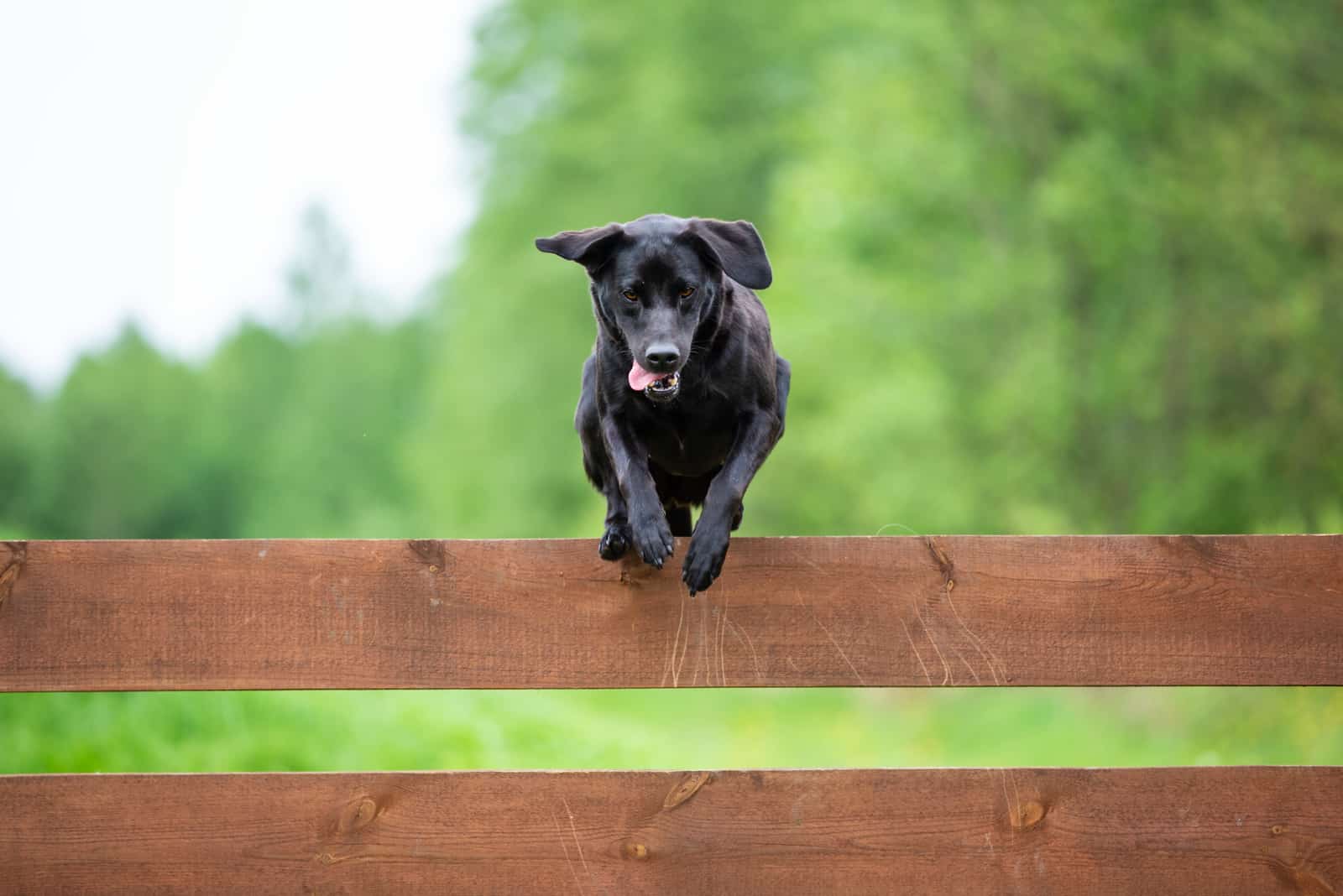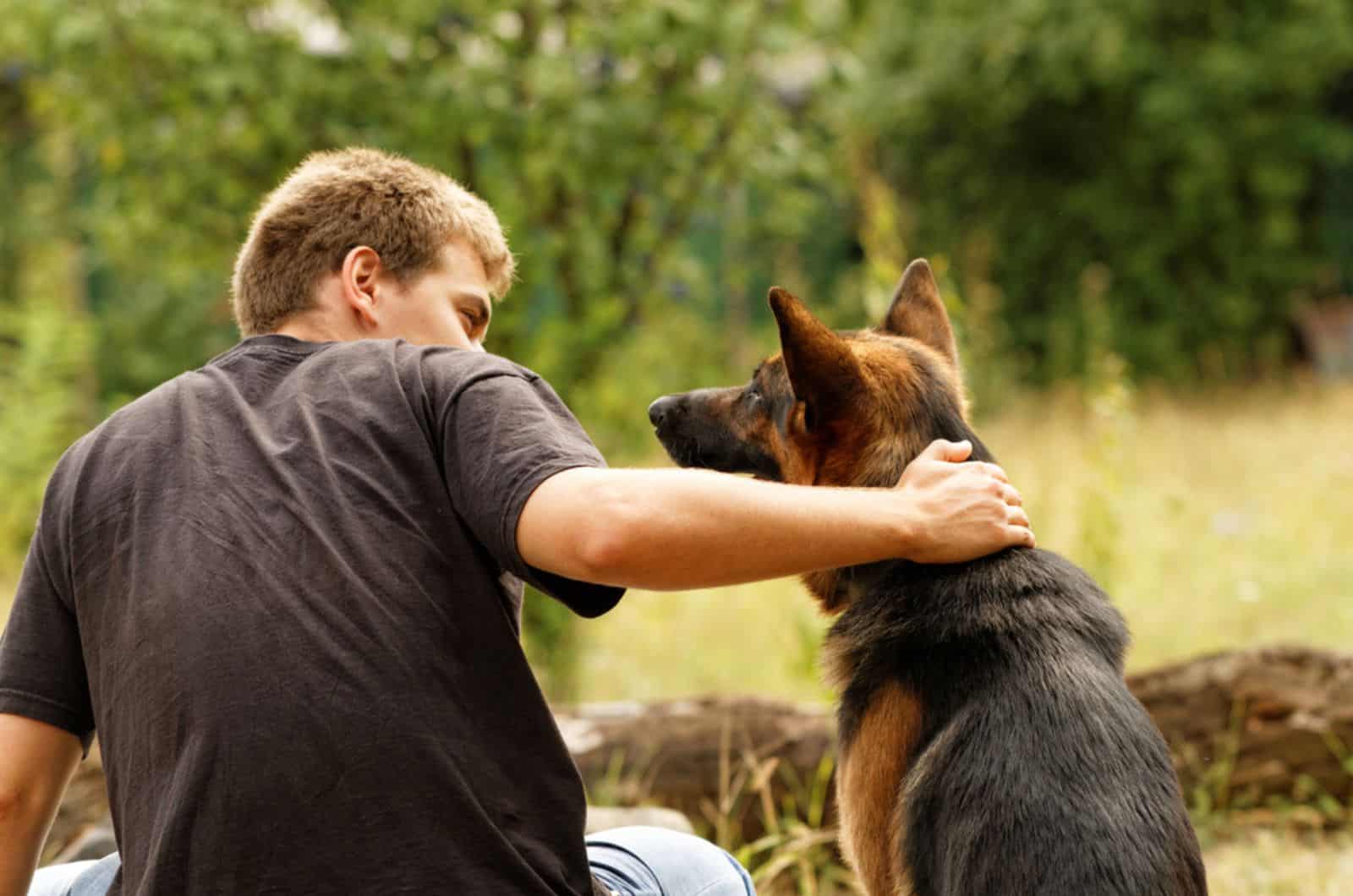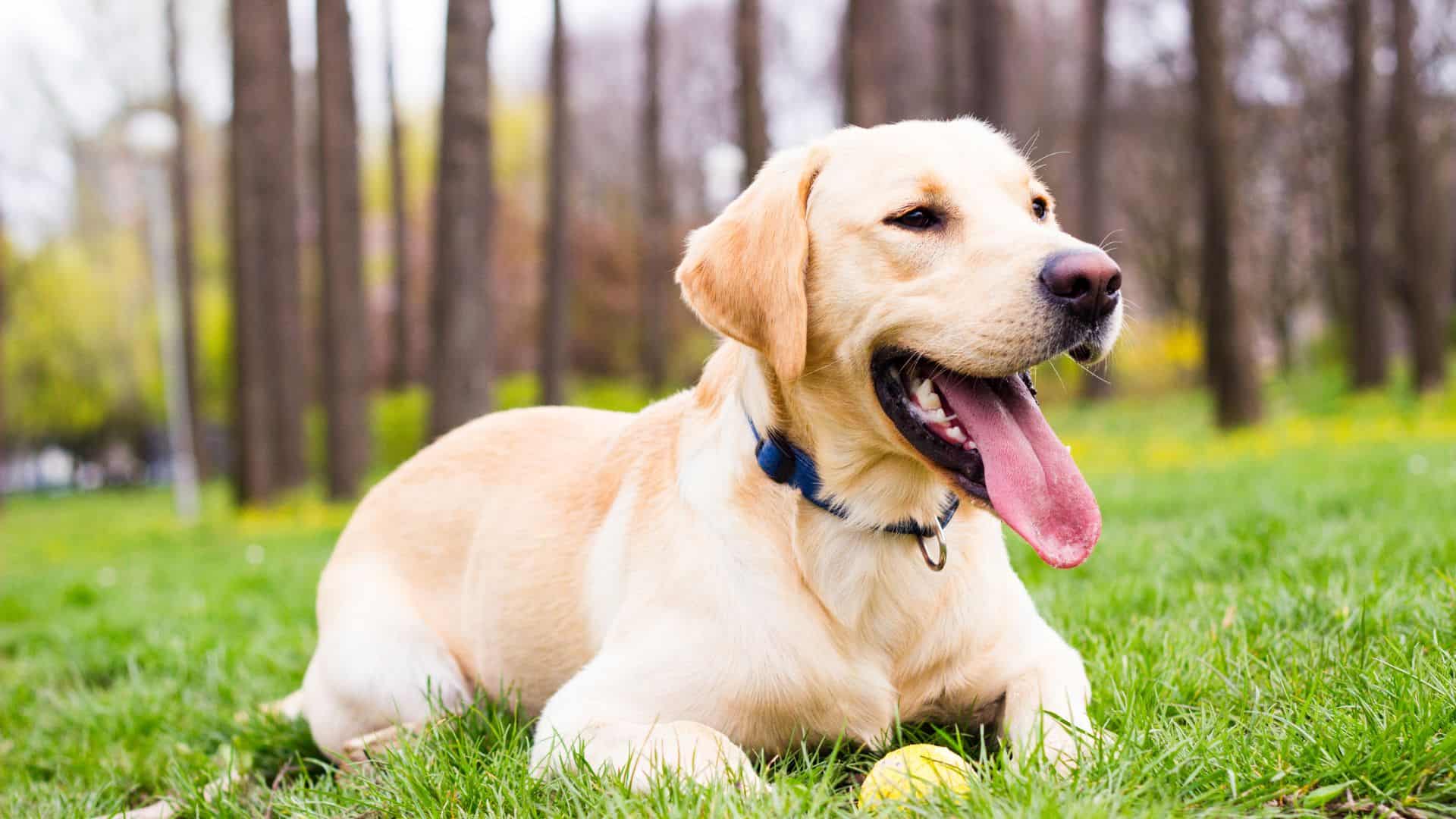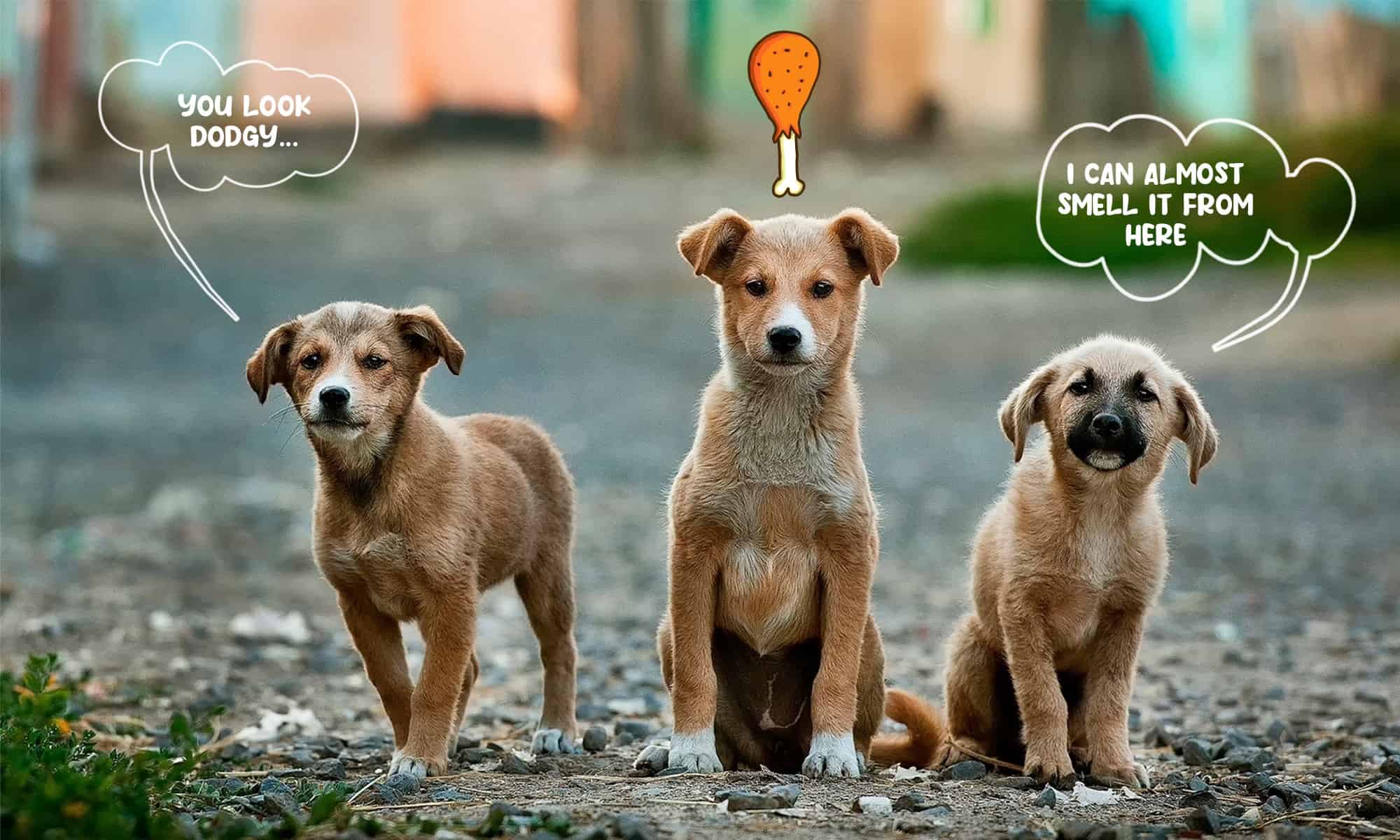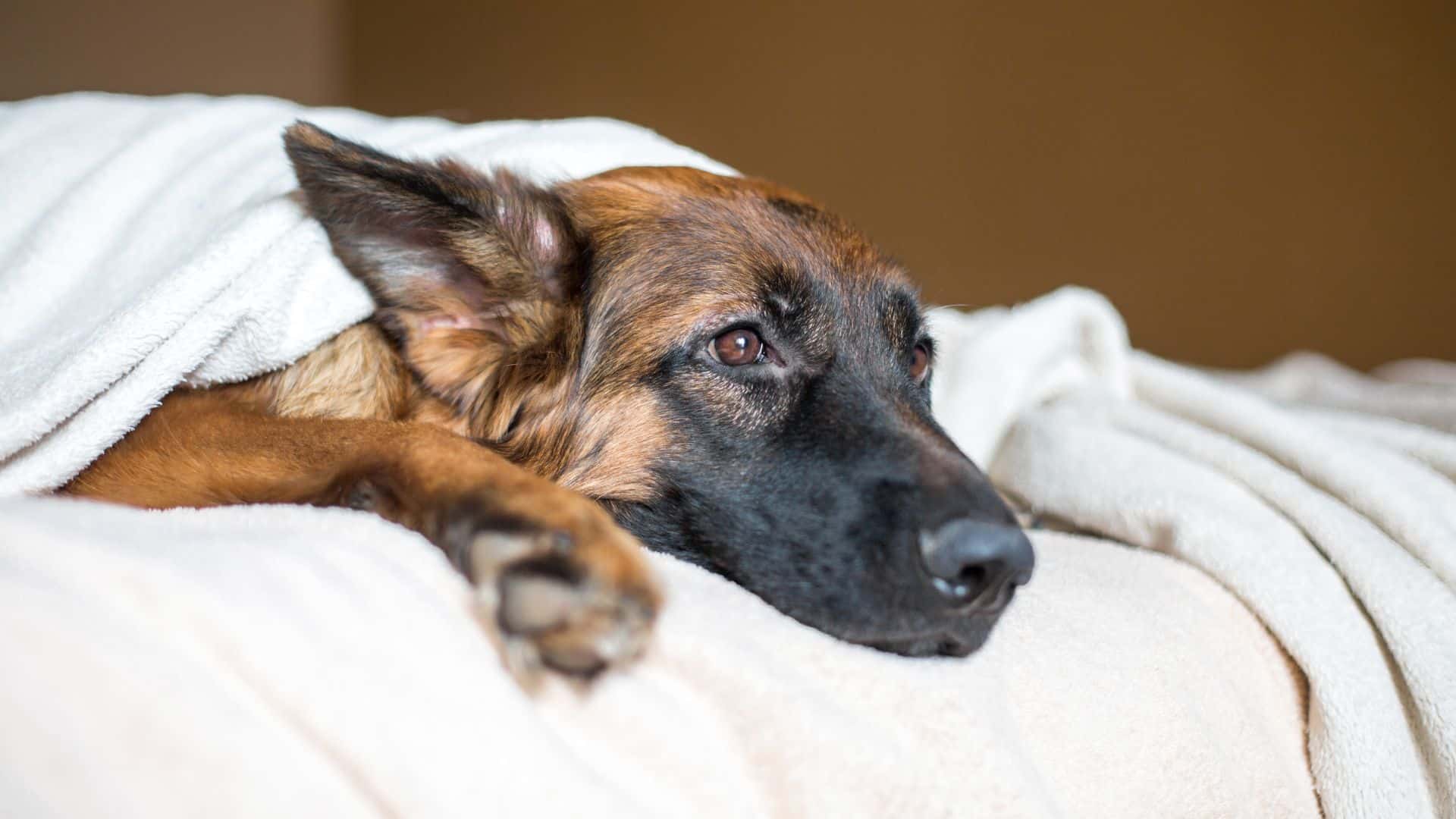The “Why does my Rottweiler growl at me” dilemma is not that uncommon, especially if you’re a first-time Rottie owner. Indeed, this is a dominant, independent, and at times, hard-to-figure-out dog breed.
Just like barking, yelping, or purring – growling is also a part of their nature. Rotties are considered to be quite vocal canines with a distinctive temperament and body language.
In order to understand why they do what they do – we need to dig into the root of the problem. Their behavioral patterns don’t always have the same trigger. That’s why it is extremely important to understand what led to a certain behavior in order to figure out how to reciprocate.
In the following part of this article, we’re about to give nine different rationales to explain the Rottie’s growling. Let’s begin!
Why Does My Rottweiler Growl At Me?
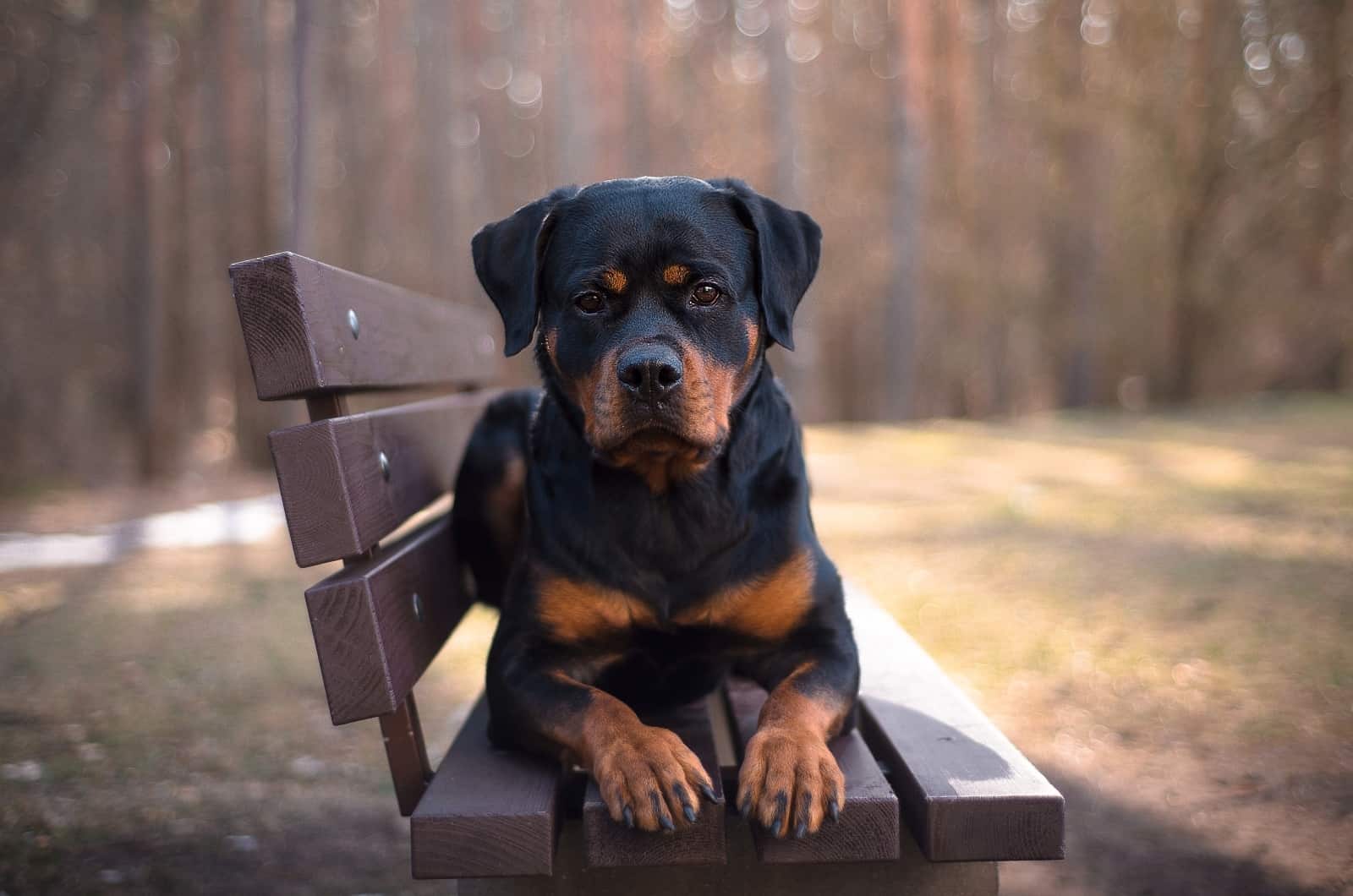
It is widely known that Rotties belong to the club of aggressive dog breeds. Rottweiler puppies are naturally bred for guardian purposes. Hence, aggressive behavior.
However, their undesirable or unexpected behavioral outbursts have nothing to do with the fact that they are guard dogs by default.
In fact, Rotties bred at reputable breeders, or raised by experienced dog owners are generally calm, confident, and tolerant dogs that don’t resort to aggression until provoked or life-threatened.
They will rather use their other body language tools, such as erect tail and ears, growling, and barking to express their emotions.
A Rottie growling has a plethora of causes hidden in certain behavioral patterns. Here are some that you can recognize in your pet!
1. Aggressive Behavior
Just like German Shepherds, Dobermans, Pitbulls, and even Chihuahuas – the Rottweiler breed is known to be an aggressive dog and a snarling beast by nature.
That’s why the reason for ‘‘Why does my Rottweiler growl at me’’ may be found in the fact that these pooches are sometimes raised to be aggressive.
That’s right. Many inexperienced dog owners (or experienced, but irresponsible) find it extremely difficult to adequately train their Rottie companions. Hence, growling and aggression!
In order to make a decent pet out of your Rottie – you need to start from their puppy age. Early socialization and obedience training are the best ways to reduce negative behavior in your dog in the long term.
It is much easier to implement socialization techniques during the puppyhood stage, than to socialize an aggressive dog in adulthood.
2. Fear Or Phobia
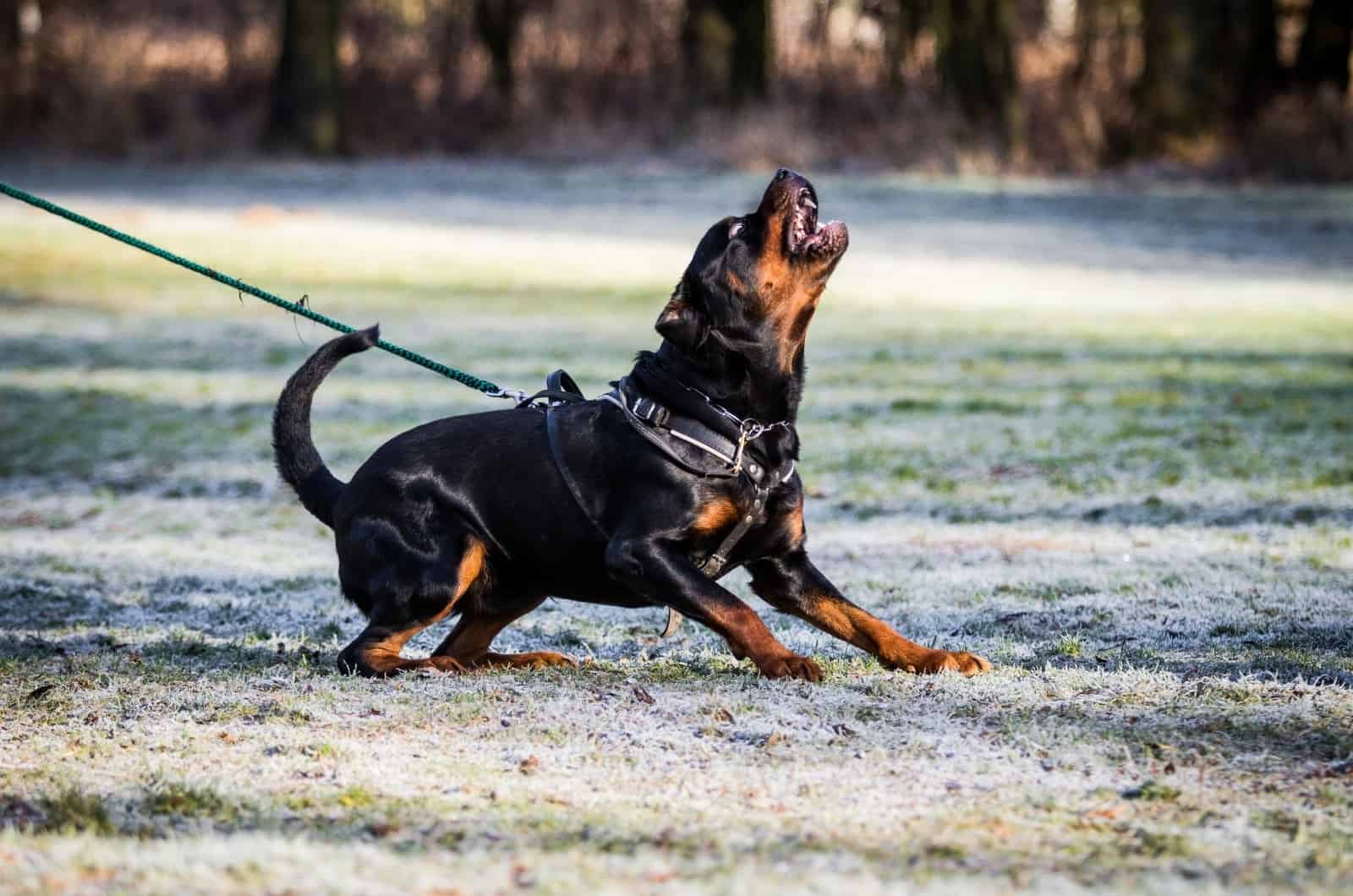
Rotties can suffer from irrational fears and phobias, too. That’s why the ‘‘Why does my Rottweiler growl at me’’ phenomenon can be at times correlated with the fact that they are simply fearing something or someone.
In order to recognize the phobia in their dogs, Rottweiler owners need to look out for symptoms such as excessive barking, crying, lethargy, aggression, panting, difficulty breathing, fast breathing, urinating in inadequate places, destructive behavior, escaping, and hiding.
Dog phobia and fear are two complex behavioral patterns that need to be addressed properly. That’s why taking medical advice from your vet, or professional advice from a reputable dog behaviorist is not the worst choice that you can make.
3. Traumatic Experience
There’s the ultimate possibility that the reason for ‘‘why is my Rottweiler growling’’ can be found in a bad previous experience. If you have picked up your puppy from a dog rescue or from the street – you need to watch out for potential outbursts.
Puppies that were inadequately treated in the past can suffer from major trauma, which is why their adaptation process into a forever home has to go slowly and gradually.
You may notice symptoms such as refusing to eat, hiding, displaying destructive behavior, aggression, or even attempting to escape from your home. The aggressive growl may be one of them, too.
4. Pain
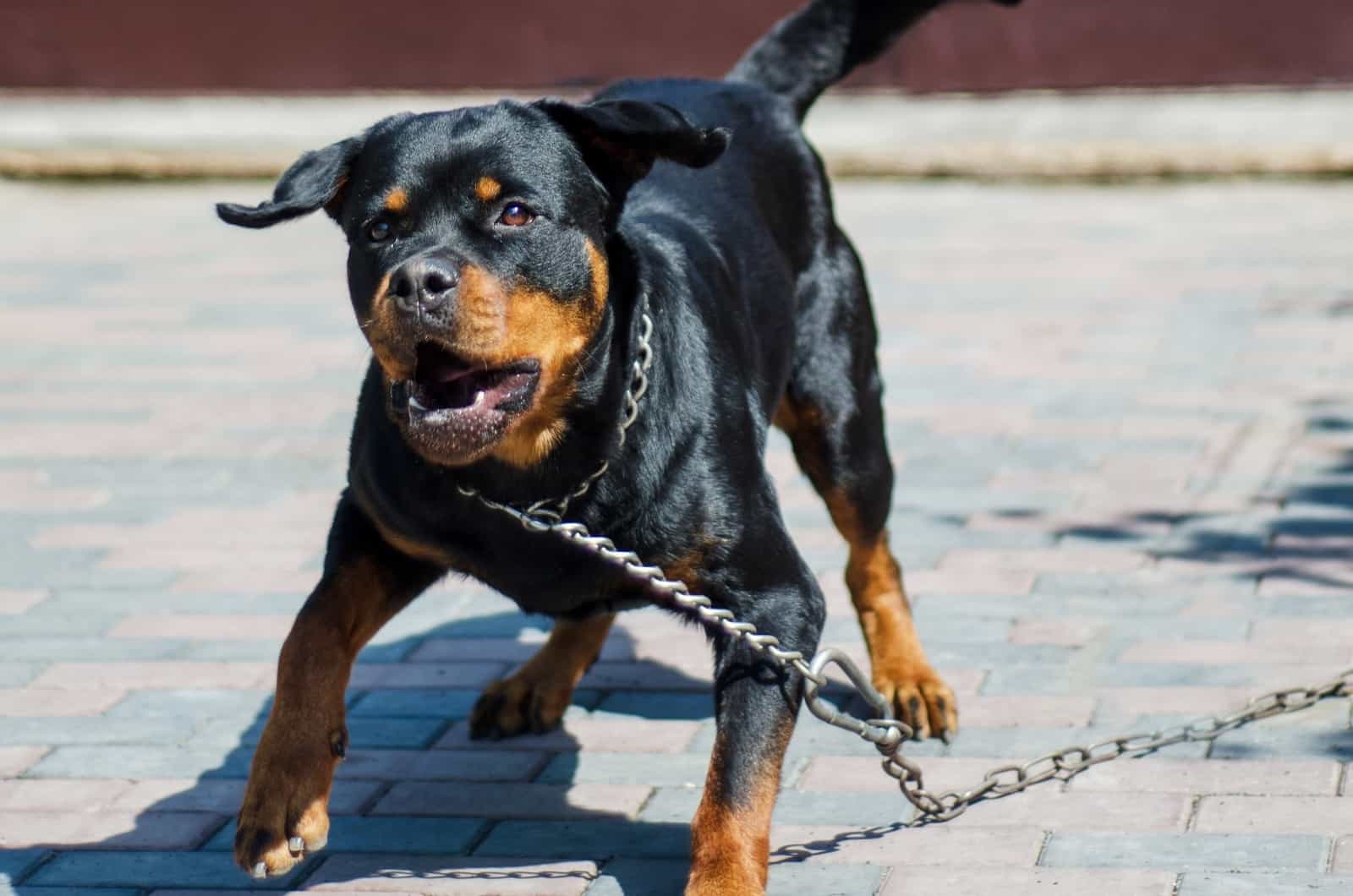
The ‘‘Why do Rottweilers growl’’ enigma is sometimes triggered by pain. That’s right. At times, the Rottweiler dog growls in order to warn its owner of a serious pain it feels. Some puppies can use aggression or even biting as a warning sign, too.
Health issues, such as hip dysplasia and bloat can have painful repercussions in these pooches. Symptoms such as abdominal pain, pain in the rear legs, panting, lethargy, and lack of energy can be an indication of severity of a certain issue in your dog.
Dogs with bloat sometimes refuse to drink water or eat, which is why they need to be subjected to a vet examination as soon as possible.
5. Food Aggression
If you’re a first-time Rottie owner, the advice is to get a puppy from a reputable breeder or get help from a certified dog trainer.
It’s simple – this is a dominant breed that requires a true pack leader. If you miss out on giving proper guidance to your Rottie, you can face things such as food aggression.
Rotties, and even Rottweiler mixes, can display food aggression as a sign of protest once their owner, or anybody else, approaches their feeding bowl while they’re eating. This is a natural behavior that needs to be addressed during their early puppyhood.
Using dog food as a positive reinforcement tool is the best way to teach your Rottie obedience and good manners. However, this process takes time, patience, and consistency as Rotties are not exactly the easiest breed to train.
6. It’s Being Protective
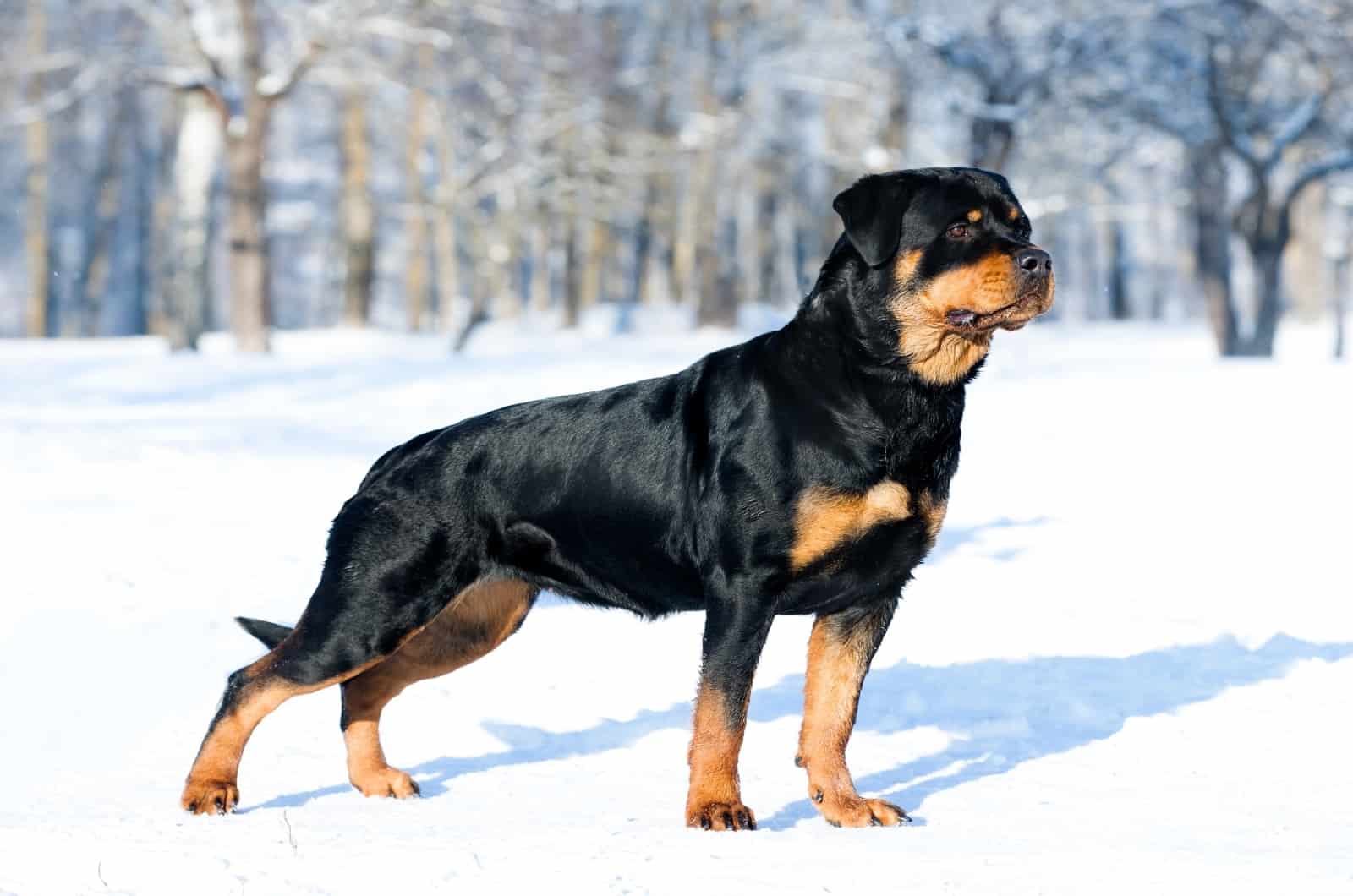
Even though these canines are not categorized as the best family dog breed in the world, the truth is Rotties are extremely affectionate and protective towards their owner.
That’s why both male and female Rottweilers, instead of cuddling, can express their love towards family members through protective behavior.
At times, this behavioral pattern can be symptomized through occasional growling towards strangers, which is why any dog owner needs to subject its puppy to early socialization.
Teaching your puppy how to distinguish friends coming over to your house from enemies is the first step towards a decent dog in the future. Additionally, you will boost your dog’s self-confidence and parental instincts.
7. Indignation Or Frustration
The answer to ‘‘Why does my Rottweiler growl at me’’ is sometimes found in the fact that these pooches are either unhappy or frustrated. Indignation happens as a result of poor understanding, improper parenting, and inadequate training techniques.
Growling, grumbling, and barking are just some of the signs through which your dog is communicating its frustration. Unfortunately, it doesn’t always end there as some Rotties can display aggression, too.
A Rottie is a dangerous dog by default, which is why you need to subject it to socialization training during early puppyhood.
Eight-week-old Rottweilers, or so, are ideal candidates for the first socialization lessons. Both female and male Rottweilers are mature enough at this age to start embracing knowledge as well as learning their first puppy manners.
8. Separation Anxiety
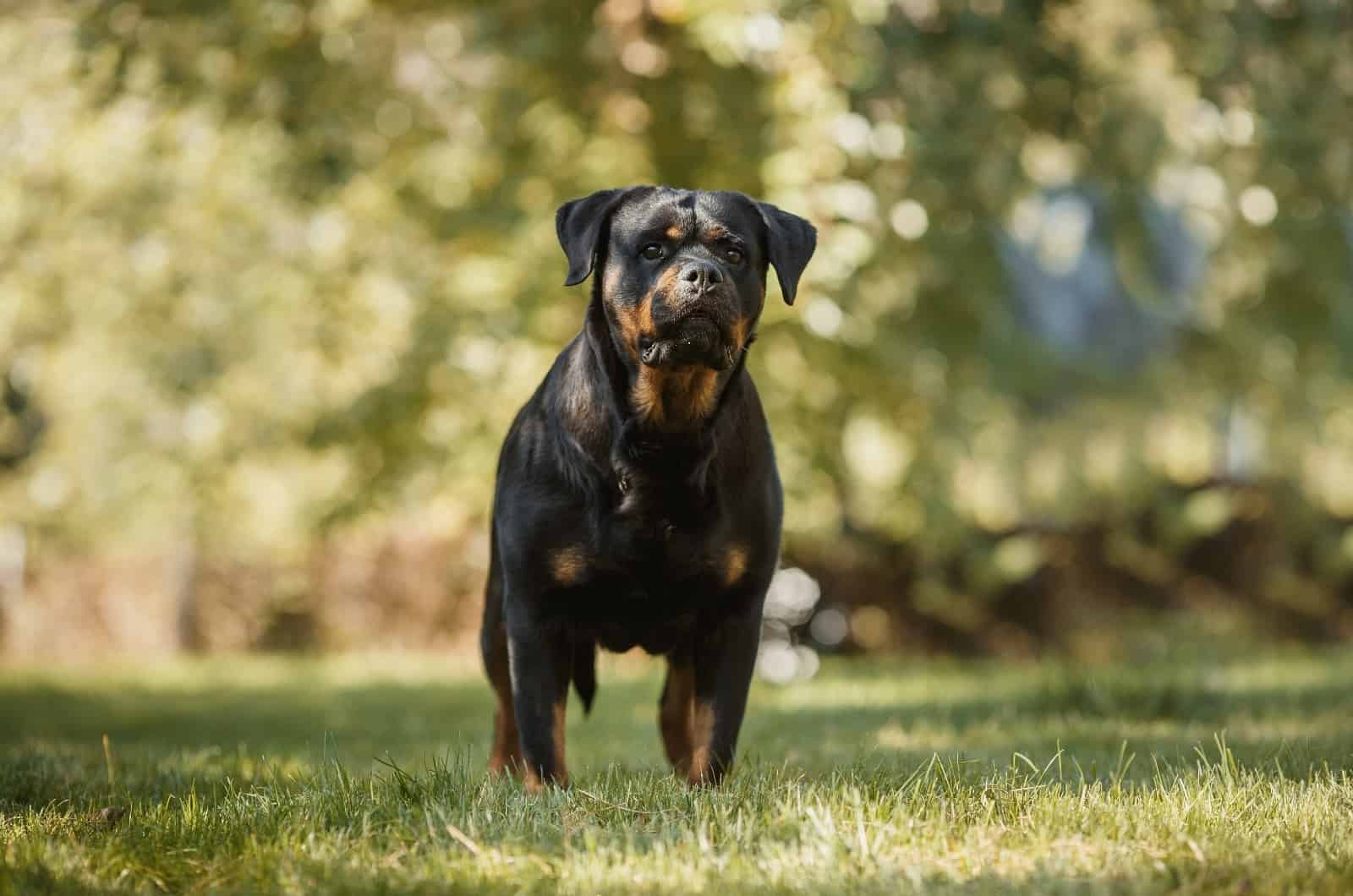
You’re reading it correctly! These pooches can also suffer from severe separation anxiety. That’s why this breed is not recommended for people who don’t have a flexible schedule. It’s quite simple – in order to be a good Rottie owner, you need to adapt to your dog!
Puppies suffering from separation anxiety are most likely to display self-destructive behavior and aggression. Growling and biting are known to be the two most popular signs of a Rottie’s aggression.
Many dog owners misunderstand the importance of their role in their pet’s life. It’s just not enough to be a dog enthusiast or dog lover in order to be a good dog owner.
If you want to have a reliable, affectionate, loyal, and committed family pet – you need to reciprocate! Any breeder will tell you that!
9. Affectionate Behavior
Even though it may sound strange, there is a very thin line between a Rottie’s growling and purring. Some Rottie puppies purr as a sign of affection towards their owner. These behavioral patterns are irresistibly reminiscent of cats that do the same thing for the same reason.
If your puppy is growling (purring) when you hug him, pet him, or call him – it may be displaying the most sincere affection. In fact, they can do the same thing in the presence of kids as Rotties are naturally good with them.
However, just like any other large dog breed – these canines need early socialization and obedience training during puppyhood. Untrained dogs can be aggressive at times, which is not desirable if you have small kids in your home.
How To Stop My Rottweiler From Growling
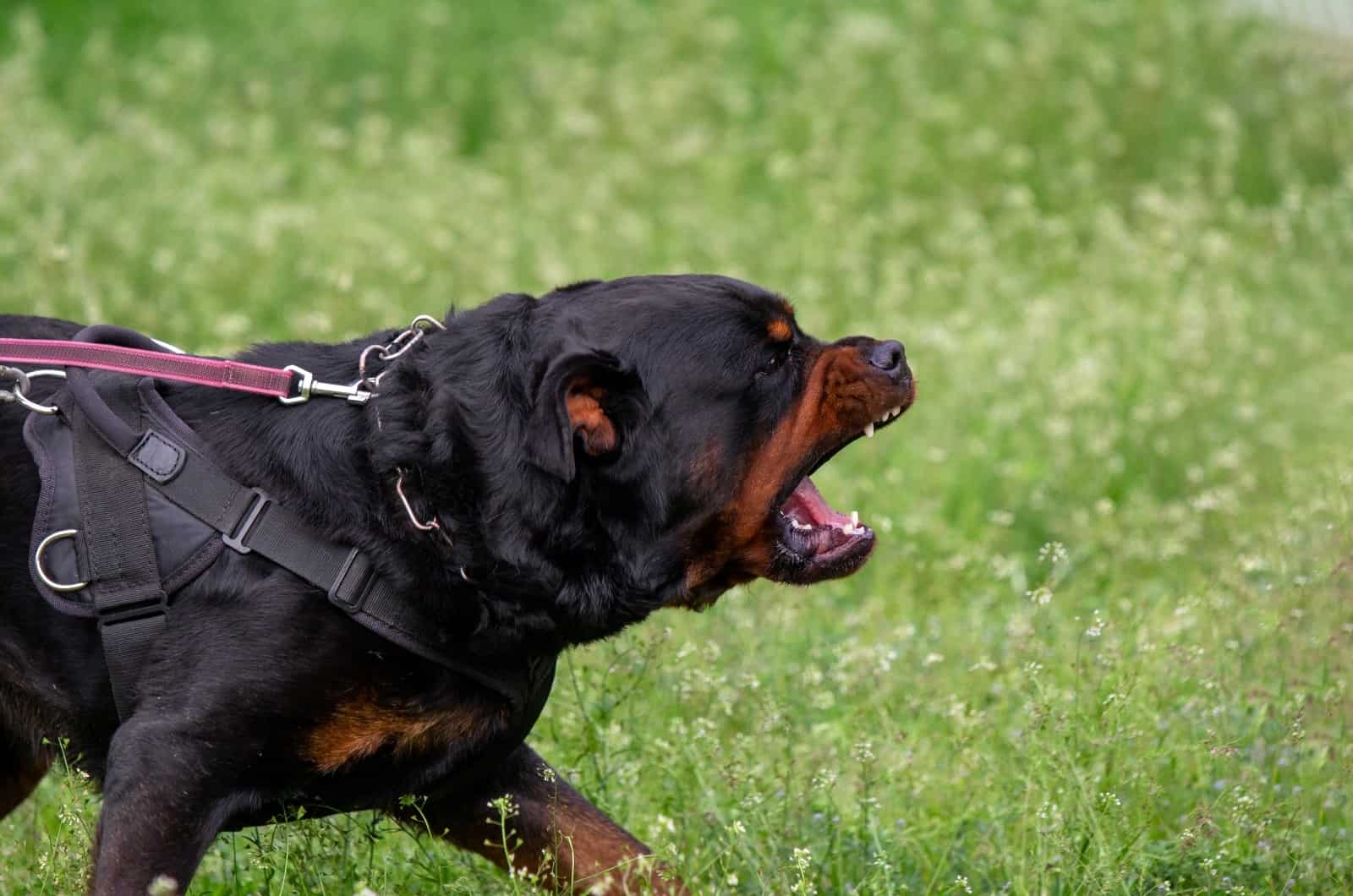
Even though it may seem at times that this scary dog breed is a lost cause – that’s far from the truth. There are always ways to teach your Rottie puppy certain behavioral patterns as these dogs are naturally intelligent.
In fact, this breed is qualified among the smartest dogs in the world, which is why Rotties are widely used as military and police dogs, too.
Here are some ways to stimulate positive behavior in your dog as well as to teach your Rottie not to growl.
1. Early Socialization
Early socialization training is the first step towards a reliable pet in the future. If you have difficulties socializing your canine, a professional dog trainer will provide a complete guide on how to do it.
The use of socialization training tools such as interactive dog toys, treats, or interactive playgrounds can be of great use in this regard.
Socializing your dog has a positive correlation with its future dog manners. It is most likely that a dog that undergoes early socialization will display much fewer outbursts in the future; hence, less growling, barking, and snarling.
That said, you should start socializing a Rottie as soon as you purchase it from a breeder. Puppies at eight weeks of age are old enough to start adopting learned knowledge. Otherwise, you will have a long and exhaustive job to do.
2. Find The Root Of The Problem
Even though Rotties are qualified among the most dangerous dogs in the world – sometimes the reason why they growl is completely misunderstood. That said, you should start looking for the cause of the problem first!
Generally, Rotties are calm, confident, and stable dogs that don’t have frequent behavioral outbursts. That’s why their growling may be triggered by a plethora of external factors such as fear, trauma, phobia, or even health issues.
Understanding the root of a problem is the first step towards a solution. If your puppy is growling out of nowhere – start paying attention to other accompanying signs. If, by chance, you don’t find anything relevant, then revisit your parenting methods!
3. Positive Reinforcement
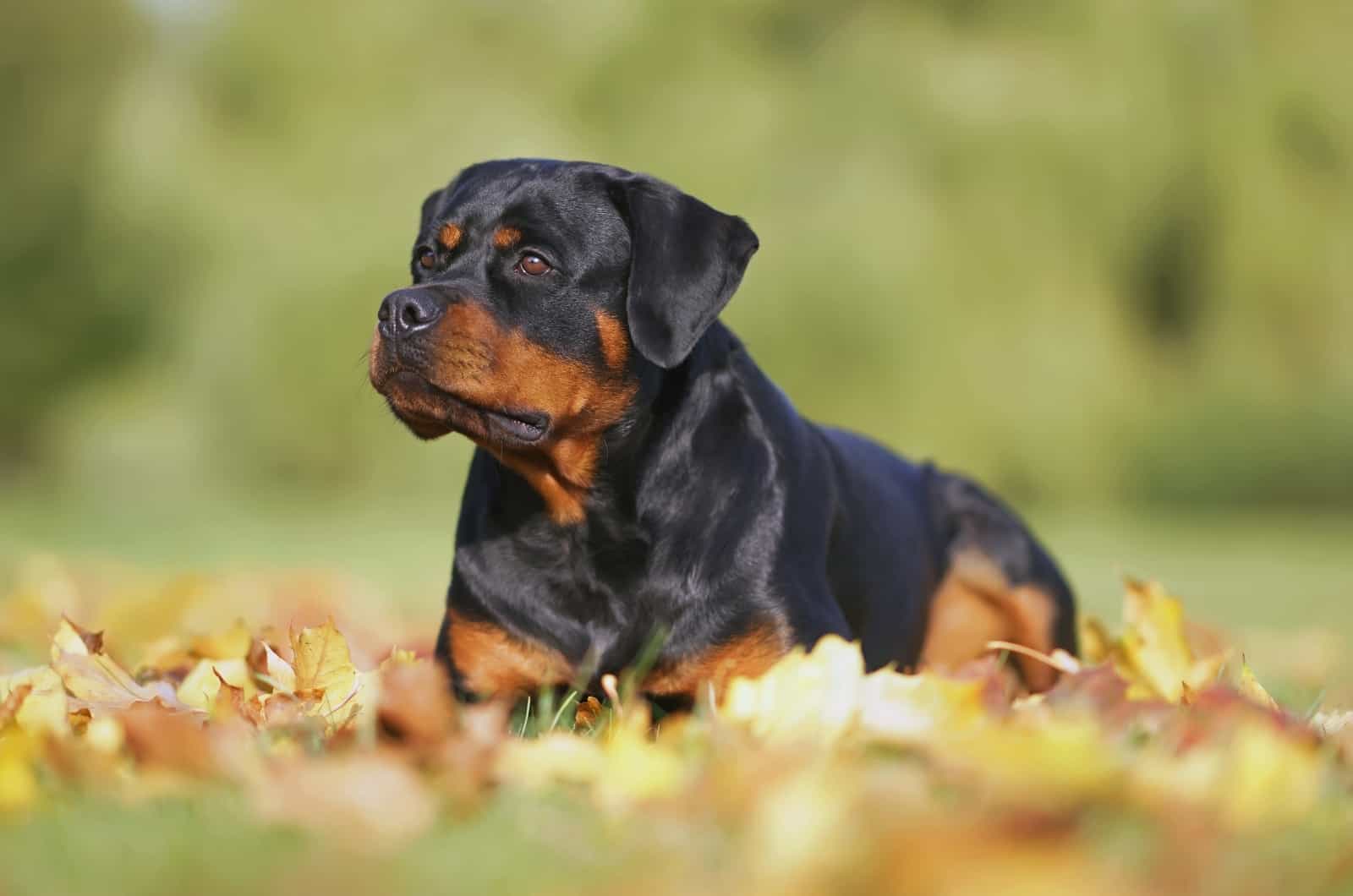
If the fact that your Rottweiler puppy growls annoys you – you can always apply positive reinforcement methods in this regard. Even though these canines require firm leadership, they don’t respond well to yelling or screaming.
Quite the contrary – the use of positive reinforcement is highly encouraged in a Rottie’s training. Dog games, such as tug of war, frisbee fetching, or hide and seek are excellent ways to mentally stimulate your dog and create a bond for the future.
Furthermore, praising, petting, and encouraging your puppy with healthy treats are proven tools during obedience training.
Rotties trained throughout positive reinforcement are more likely to have a higher level of tolerance as well as adapt faster to new circumstances. Hence, less growling, barking, and aggressive behavior.
4. Gradual Adaptation
Rotties are extremely sensitive dogs that need to be gradually adapted to a new environment. This way, you will avoid potential stress, trauma, or phobia.
Slow adaptation is especially encouraged in dogs that have already suffered from a bad experience. For starters, keep your Rottie in a low-key environment. That said, avoid loud noises, yelling, and surprises.
Furthermore, you can always use treats to encourage your dog and to display positive behavior. Additionally, providing a nurturing, comfortable sleeping place for your dog is a way to create trust.
This may not be one of those lap dog breeds, but it will for sure know how to reciprocate!
Final Thoughts
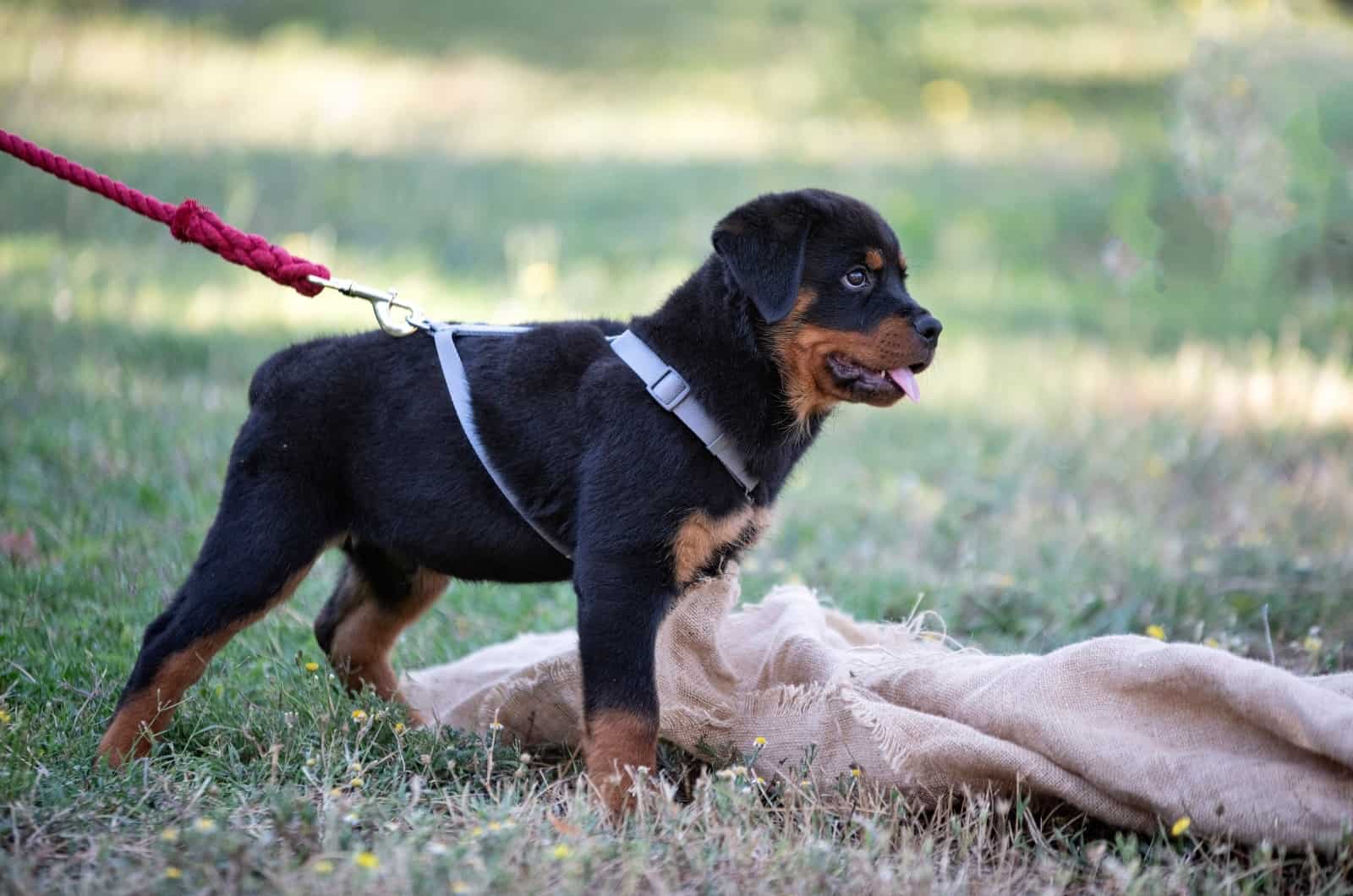
The ‘‘Why does my Rottweiler growl at me’’ dilemma can be a never-ending enigma. That said, Rottie owners should pay attention to other accompanying signs as growling can be triggered by a plethora of different reasons.
That said, understanding your dog’s behavior by paying attention to other behavioral patterns can be of crucial help to finding the cause of this particular behavior.
Rotties are naturally dogs with a whole set of emotions, which is why their body language can reveal a lot. Your job is to listen and act accordingly.
Read more: Why Are Pitbulls So Clingy? Dealing With Needy Pitties

